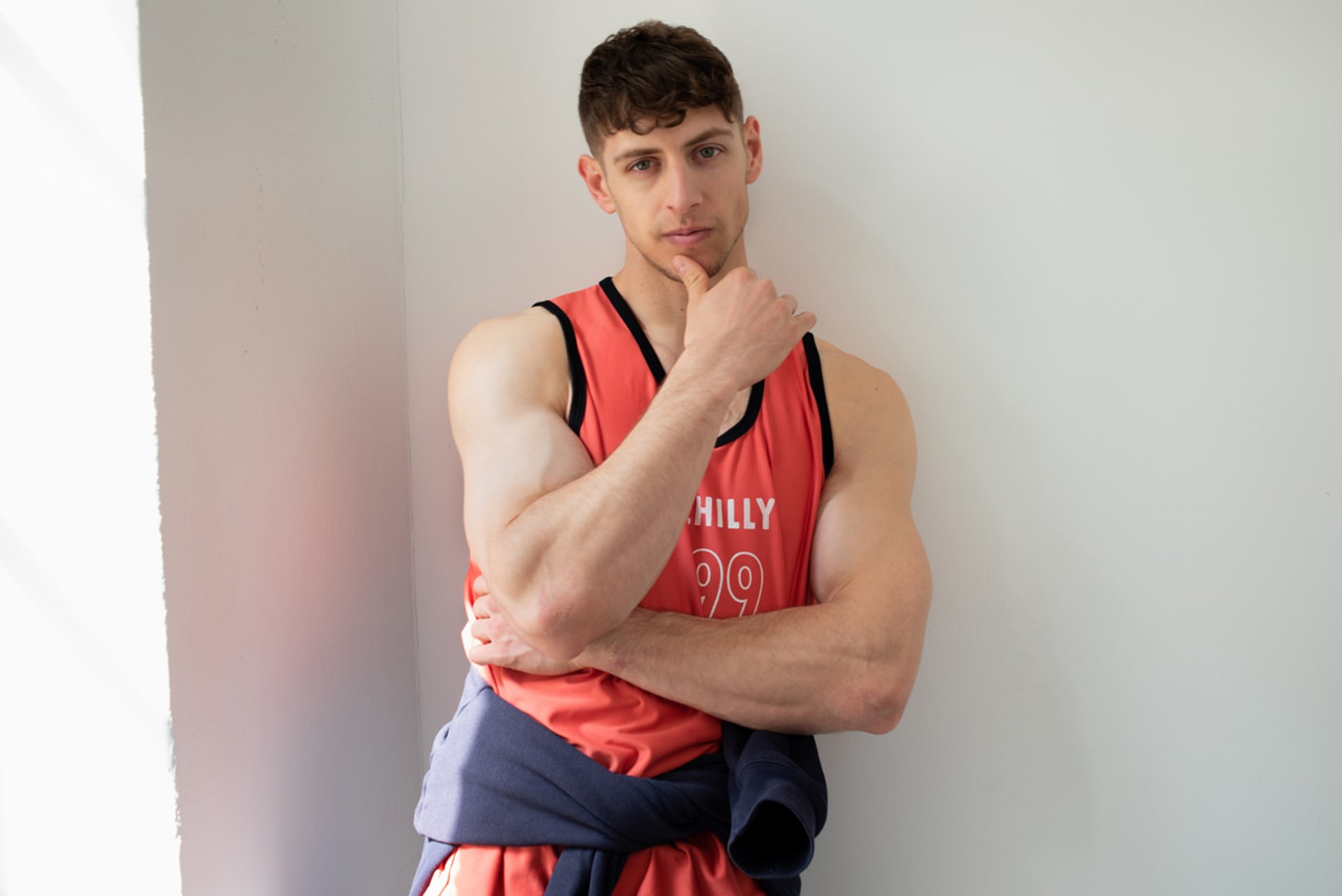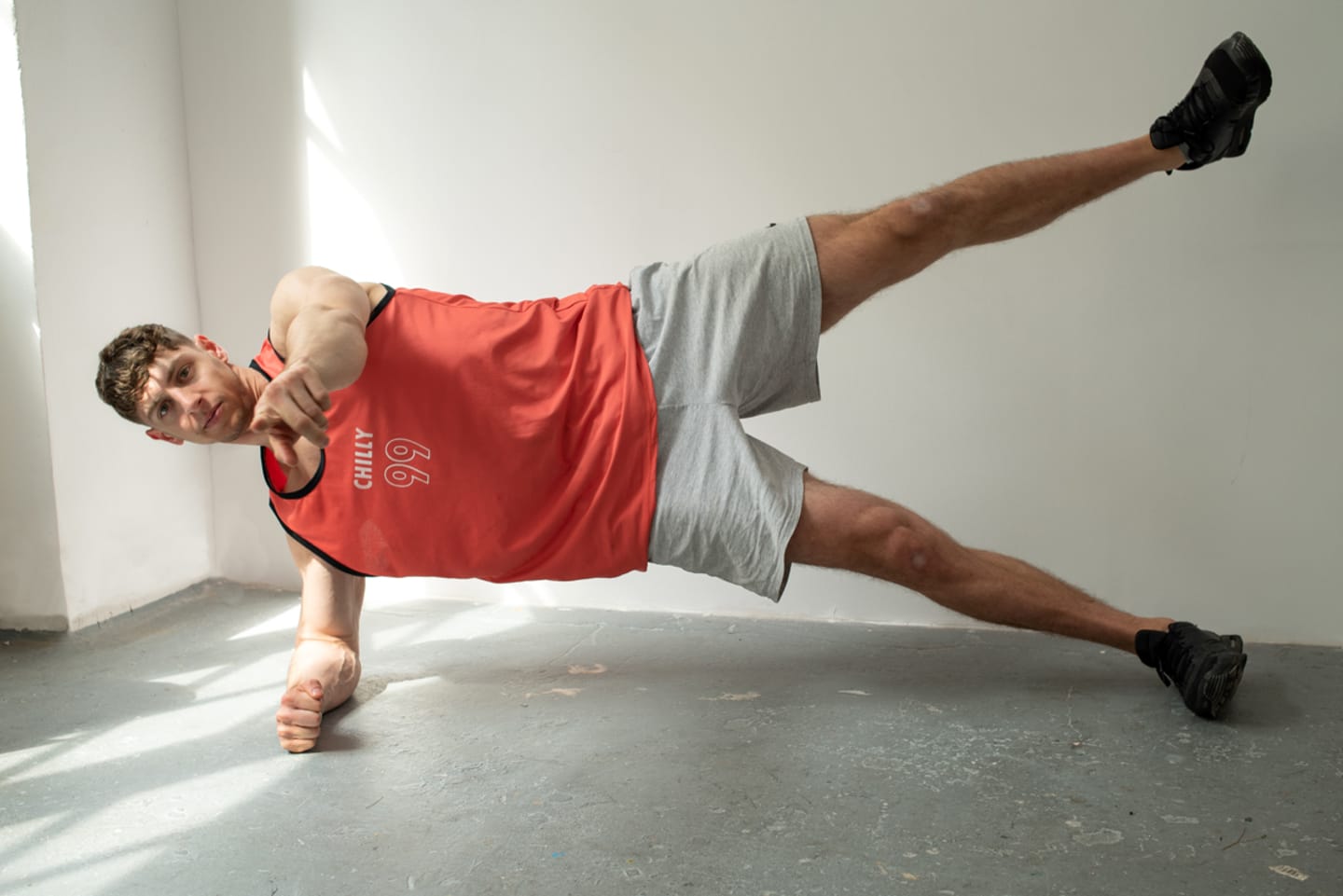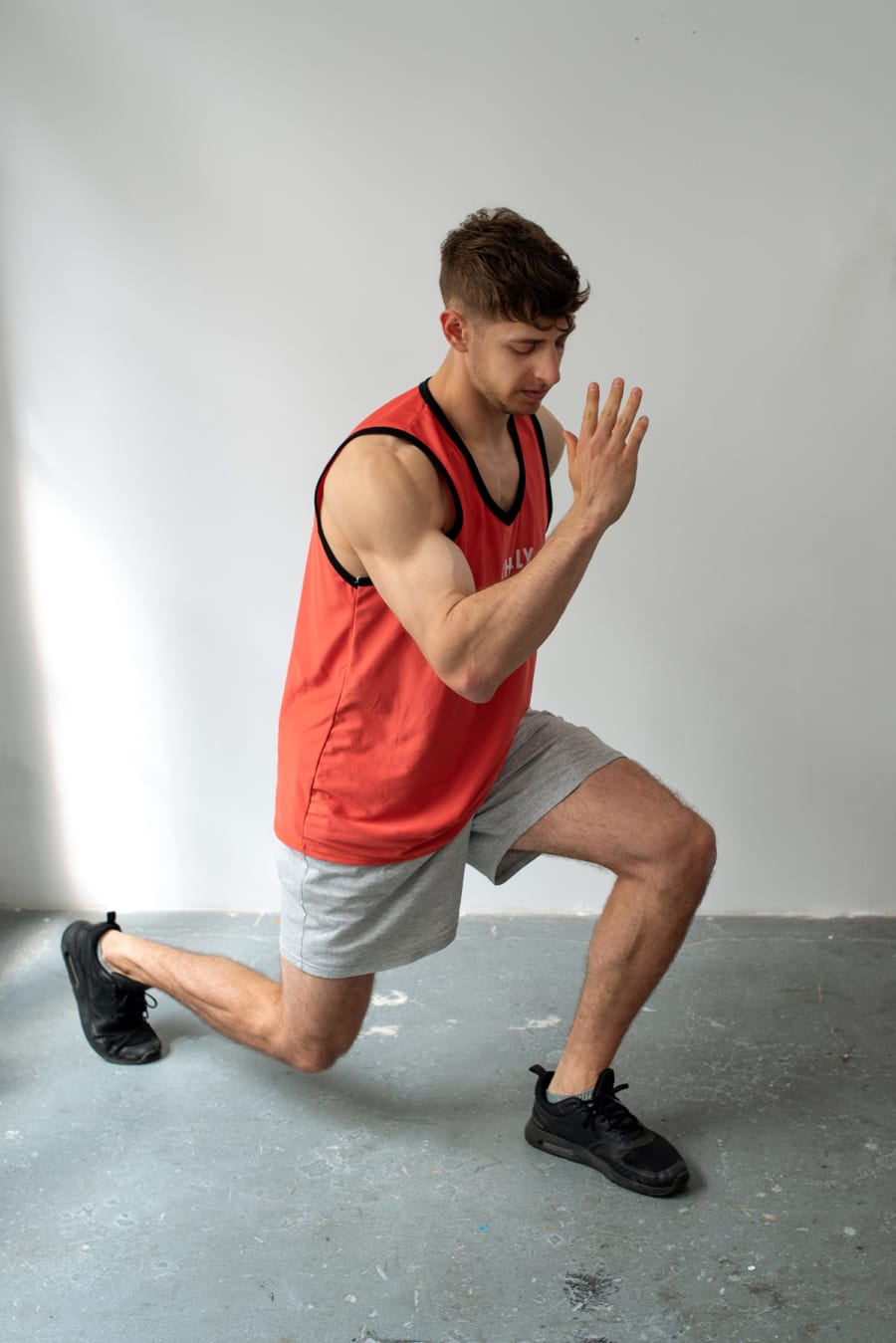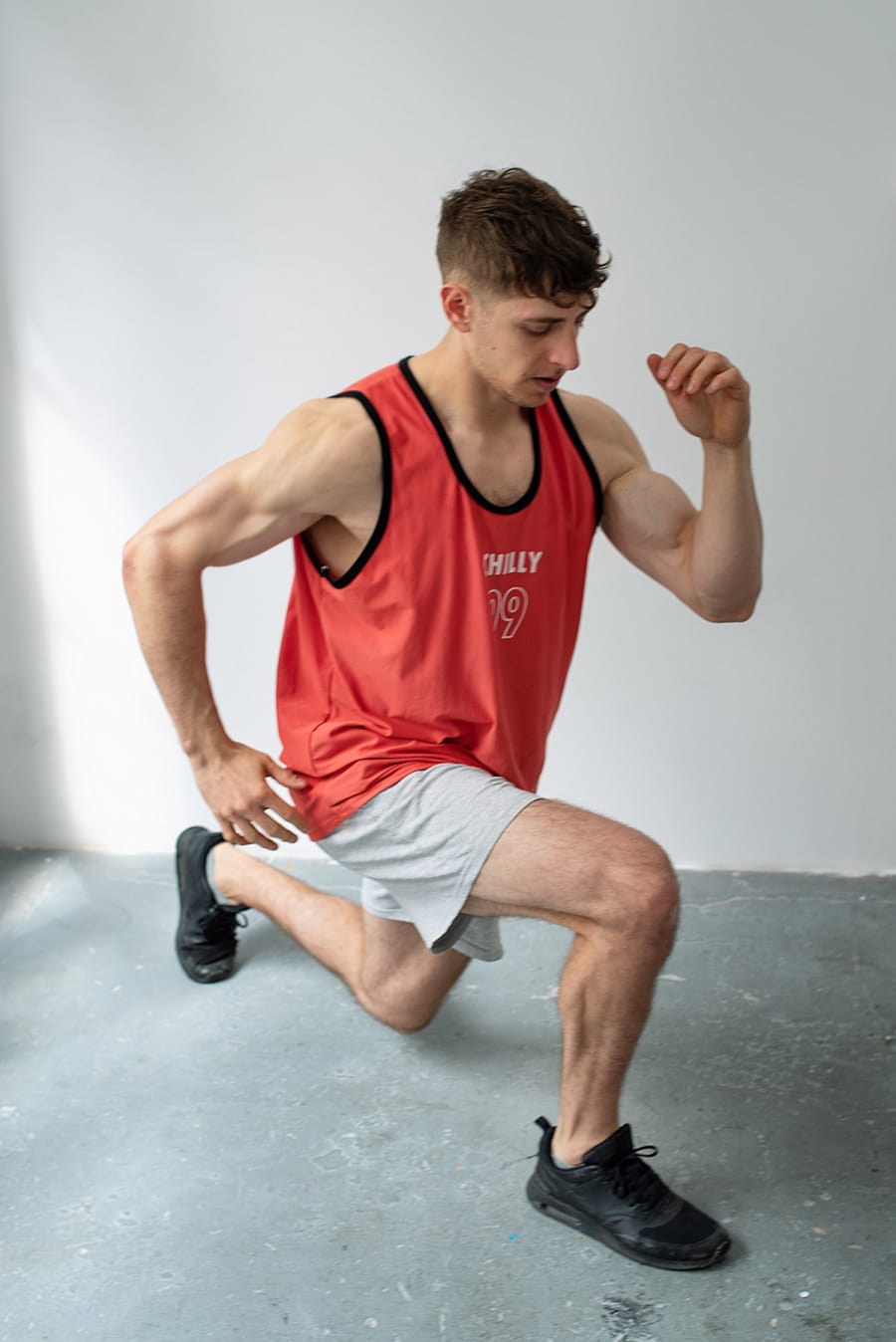The article you’re reading comes from our archive. Please keep in mind that it might not fully reflect current views or trends.

Nathan Micay On Weightlifting, Health In Dance Music And His New Album ‘Blue Spring’
Even though there is an aerobic aspect to dance music (it is about dancing after all), the industry that surrounds it hasn’t always been in the best shape. That goes as much for the artists and producers behind the decks as it does for your average bleary-eyed 60-hour techno party attendee. Attitudes towards health are changing, however, and one artist who exemplifies this is Nathan Micay.
First under the alias Bwana and then now under his own name, Micay has long made fitness an integral part of his career. Case in point: his first appearance on Boiler Room, which he kicks off with a few tongue-in-cheek stretches before downing a protein shake brought to him mid-set. If you watch that video, and we hope you do, you’ll also notice something else: Micay isn’t just healthy, he’s totally jacked.
Fitness is just one of many different threads that weave through his complicated artist persona which also incorporates an anime obsession (he has previously written a guide to classic anime soundtracks for this website) and a love of uplifting trance.
Blue Spring, his recently released debut LP for Lucky Me, combines both of those two latter aspects. Its tracks are like contemporary deconstructions of trance and progressive house, and it comes with a fully fleshed out backstory told across a media narrative that includes a comic book and a partially animated website, both with illustrations inspired by Katushiro Otomo, the creator of cult sci-fi manga Akira.
Though fitness isn’t addressed directly by the album, by Micay’s own admission, the dedication that he’s learned in the gym has also allowed him to produce at the prolific rate that he has. For this week’s artist profile, TEB editor Zach Tippitt met with the producer to learn about this relationship between fitness and process that guides Micay’s output.
Nathan Micay - Ecstacy Is On Maple Mountain
“It’s OK, I don’t drink coffee.” I wasn’t oblivious enough to ask the overtly health-conscious artist to meet at a bar in the middle of the day, but this was a surprising oversight. In a city that wears its reputation as a hedonistic party-goer’s paradise on its sleeve, it was startling to meet a DJ who doesn’t even drink coffee—or drink alcohol, smoke or take drugs, for that matter.
Nathan Micay isn’t that kind of DJ, though. As we move on from the coffeeshop and settle in a park not far from John Reed Fitness—where Micay spends most of his time when he’s not DJing or producing—I realize the clear-eyed and (frankly) jacked Canadian pretty much embodies everything you’d expect a DJ not to be. He looks, maybe most surprisingly, very well rested.
Despite his contrast with Berlin’s notoriously hedonistic lifestyle, it seems that the city’s (and the world’s) music industry may be shifting more towards Micay’s approach than the other way around.
It may be a morbid landmark, but last year, the tragic death of Swedish EDM superstar Avicii sent a shockwave through the international dance music community. It served as a much-needed wake-up call and a catalyst for change in an industry that has paid little to no attention to the self-care and mental health of its artists.
Now in 2019, DJs are hiring personal trainers, going to spin class and eating plant-based diets. Dance music is in the process of cleaning up its image, and DJ-slash-personal-trainer Nathan Micay is a leading figure in reshaping the idea of the DJ from burnt-out ne’er-do-well to athletic, sustainable performer.
Micay takes a balanced approach to training, music and—from what I can tell—pretty much everything else in his life. But he’s also quick to point out his own previous excesses. Micay is, for example, quite a big person. Apparently, though, during a previous stint as a powerlifter, he was much, much bigger.

I try to imagine how that’s possible while he tells me, “In my early 20s, I weighed about 230 pounds, and I was lifting pretty serious weight. But when music became my profession, training became more about functionality. Now I care about how I can push my body and how I can apply it, at least in some way, to life. Being obsessed with size was a young man’s game. Now, it’s about strength, endurance and flexibility.” He delivers this quote in a tone that should be familiar to anyone who’s been audience to the mini-monologues of seasoned coaches and reformed personal trainers, for whom the naivety of slamming energy drinks and “putting up the weight” at whatever cost has given way to a more holistic approach. Micay’s workout schedule, for example, relies just as much on bouldering and bodyweight training as it does bench pressing and deadlifting. Variety and functionality matter much more than sheer weight or competition.
The discipline that he’s learned in the gym can also be found in his approach to production. Repetition and adaptability have made him an incredibly efficient producer. In 2018 alone, he released two acclaimed EPs on Whities and ESP Institute, and as far as this year goes, he just released his debut full-length, Blue Spring on Lucky Me.
“I’m all about doing as much in as little time as possible,” he says. “I like to sit down and do everything at once. I don’t finish a track and mix it down. I do everything together. That’s definitely from my workouts. At the gym, I don’t have a cardio day. I mix it all in a blender.” Talking with Micay, I notice him draw these comparisons in nearly every aspect of his double life. You can tell he’s cross-referenced ideas between music and fitness quite a bit, developing a personal philosophy that holds in either situation.


It’s Micay’s devotion to this philosophy that makes him an ideal model for the reformed DJ or artist—and it’s what makes him such a great personal trainer. He’s committed to helping others examine and improve their lives, and his unique set of skills has made him uniquely suited to helping Berlin’s creative community get fit—which, thankfully, is a role he’s happy to fill.
A trainer needs to be able to speak his clients’ language, and Micay is all too acquainted with the needs and struggles of people working in nightlife’s unscheduled, physically-straining environment. He’s quick to point out that some of dance music’s biggest acts—like Dixon, who had a stint as a football player—come from athletic backgrounds. For him, it’s simple: “As a DJ, I can do my job more easily without back pain or fatigue. It’s an athletic thing. Standing for six hours can be exhausting, and if you haven’t worked the muscles that allow you to stand up tall, then it’s difficult. If you go to bed, you get two hours of sleep and then have to go to the next night. You need athleticism to get through that.” These aren’t the same workouts that a businessperson working nine-to-five from their desk needs; Micay’s approach is tailor-made by the modern DJ for the modern DJ.
Trainers don’t just deal with the physics of getting healthy. At any given point in a workout, they have to be prepared to become a best friend, a mentor or a therapist. Artists operate without defined work-leisure hours in a system where the ratio of success to how long or hard one works rarely adds up. In Micay’s words, “With music, I can be as intense or work as hard as I want, but it doesn’t mean I’m going to please Mr. A&R over there or a promoter.” The artistic life offers tons of freedom but little in terms of structure and having that one hour a day in the gym, where you know that you’ll only get out what you put into it, can make all the difference.”
While Micay’s workouts are fine-tuned for improving performers’ stamina in their professional lives, they’re equally focused on improving balance and sustainability in life in general. Artists are surrounded with stories of overnight success, so the slow yet constant progress that going to the gym provides can help mold a healthier perspective overall. Lessons learned in the gym translate to all aspects of life: “You need to have the patience to learn. And the patience of training. It’s not going to happen overnight. Training will always be about the long game, and that’s given me patience and helped me manage expectations within music as well.”
Musicians, especially working the DJ circuit—and especially based in Berlin—can easily get caught in a constant stream of harmful behavior. Part of what makes Nathan Micay’s outlook so attractive is that he acknowledges this, and he doesn’t demonize people or their lifestyles. Instead of a full overhaul, he seems more interested in changing people’s perspectives and helping them find balance. He sums it up nicely: “If you smoke and drink and don’t take care of yourself, you’re gonna fall off that ladder to success at some point. But with fitness, you go straight, and you do it. There’s very little room for wondering how a person got to a certain level. They probably worked hard and put in the time.“
